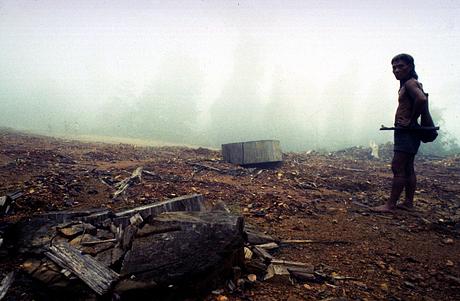UN publishes report detailing ‘critical situation’ of Indigenous people
January 21, 2010
 © Andy and Nick Rain/Survival
© Andy and Nick Rain/SurvivalThis page was last updated in 2010 and may contain language which is now outdated.
The United Nations has released a report highlighting the challenges faced by Indigenous peoples, describing their situation as ‘critical’, and urging that land rights are crucial for their cultural and physical survival.
‘The State of the World’s Indigenous Peoples’ asserts that ‘many of these communities are now on the brink of what some describe as genocide’, and highlights as particularly threatening the construction of dams and the clearing of forests for logging, mines and soy plantations.
The report says that these projects often cause large-scale environmental destruction, introduce diseases such as malaria and flu to which many Indigenous people have little resistance, and result in the forced eviction of Indigenous people from their ancestral lands.
It echoes the message of Survival’s short report ‘Progress Can Kill’, which demonstrates that policies designed in the name of ‘progress’ often bring huge misery to tribal peoples in the form of disease, obesity, suicide, addiction and reduced life expectancy.
The UN report also draws attention to Indigenous peoples living in ‘voluntary isolation’, i.e. ‘uncontacted’ tribes, who face particularly severe risks as invaders move in to their territory. The case of loggers working illegally on the land of uncontacted tribes in Peru is higlighted.
It also emphasises the particularly high suicide rates experienced by Indigenous people, such as the Guarani, whose suicide rate was nineteen times higher than the national rate between 2000 and 2005.
The report discusses the problems surrounding the creation of national parks on Indigenous peoples’ land, and highlights the ruling by the Botswana High Court that the 2002 eviction of the Bushmen from their ancestral lands in the Central Kalahari Game Reserve (CKGR) was unlawful.
At the launch of the report in Rio de Janeiro, Indigenous leader Marcos Terena denounced the ‘paternalistic policies’ surrounding ‘development’ projects, which fail to respect the self-determination of Indigenous people.

